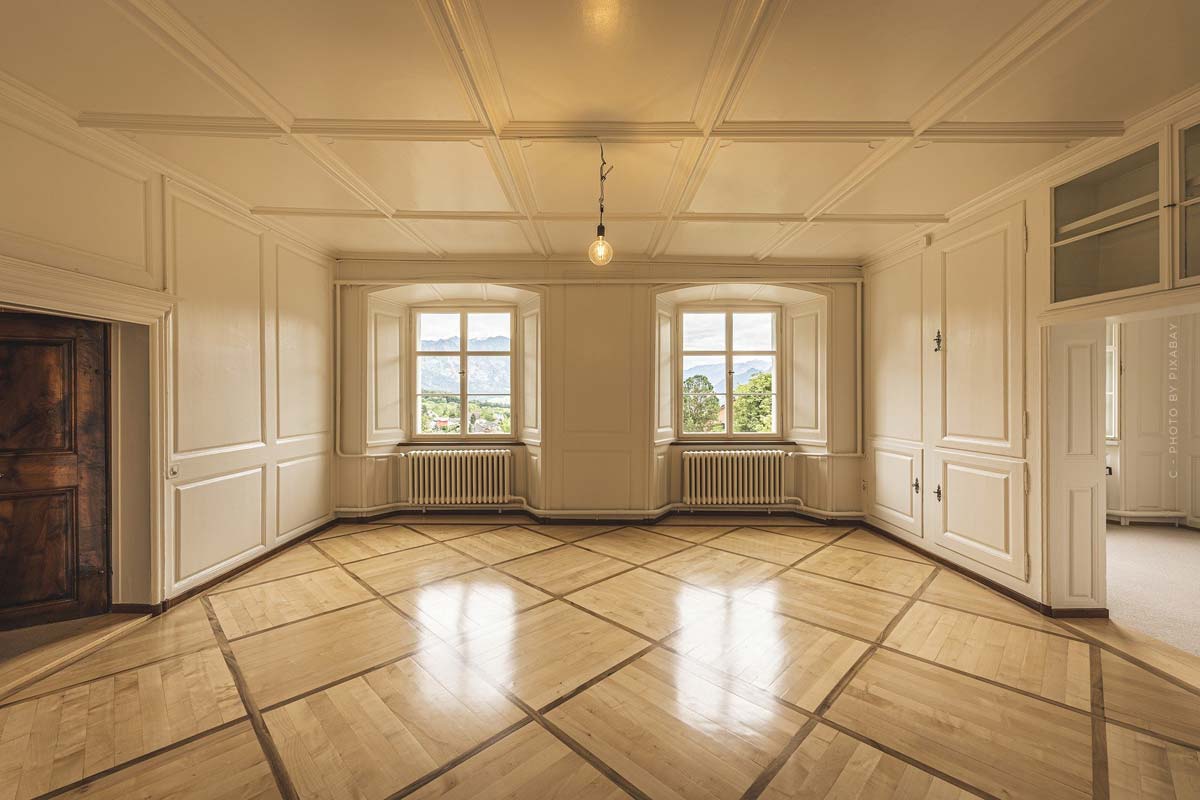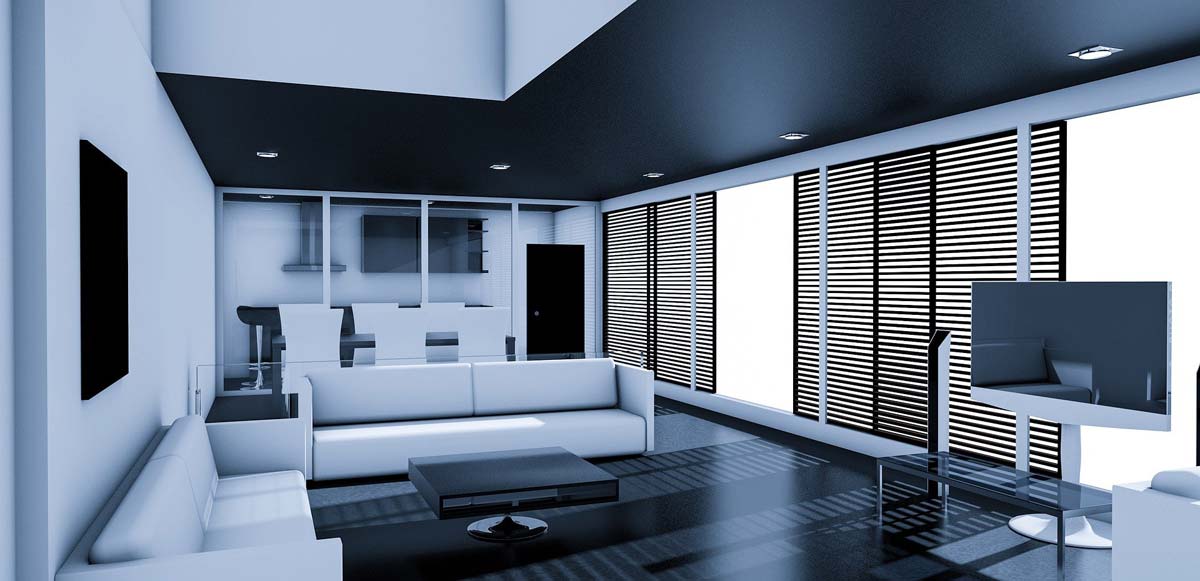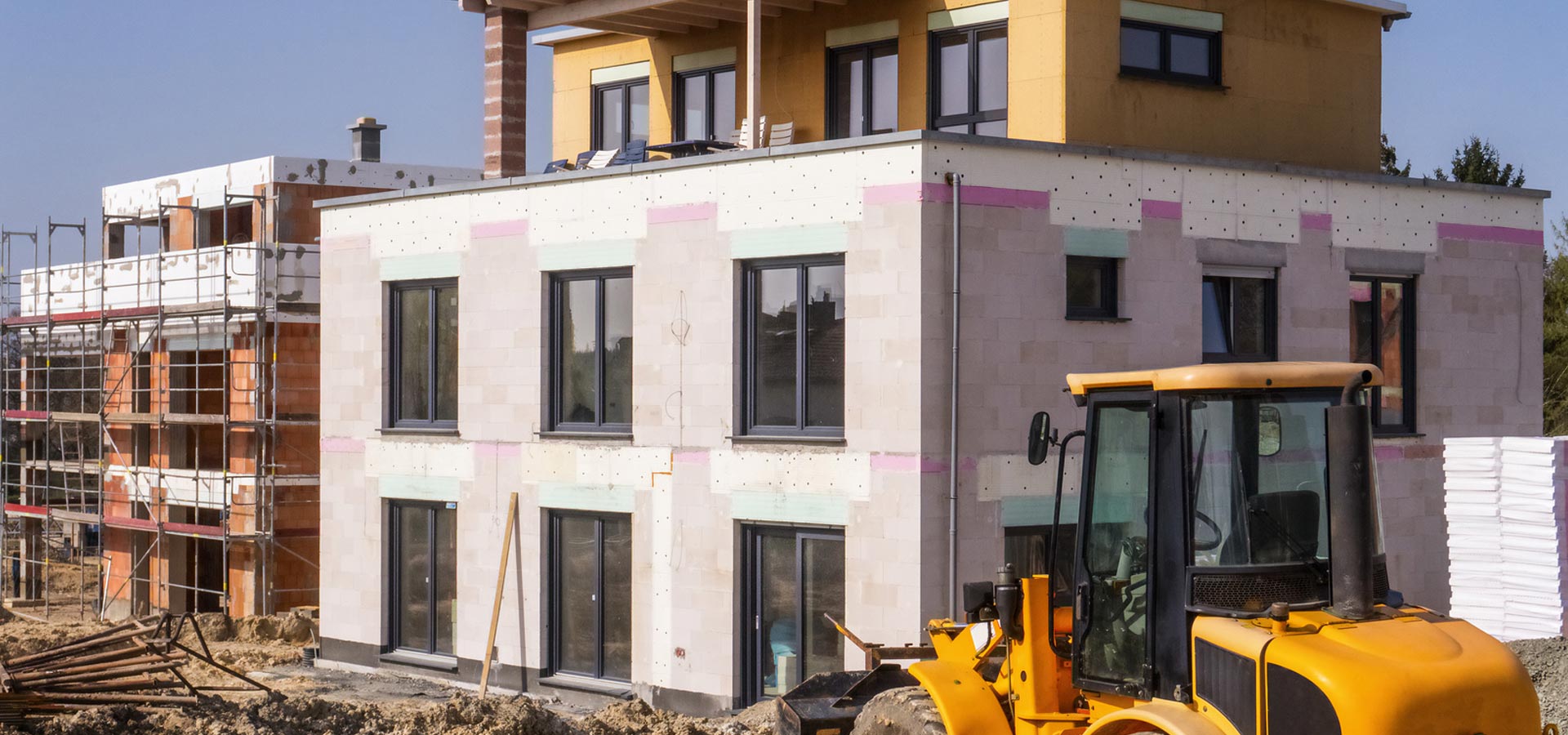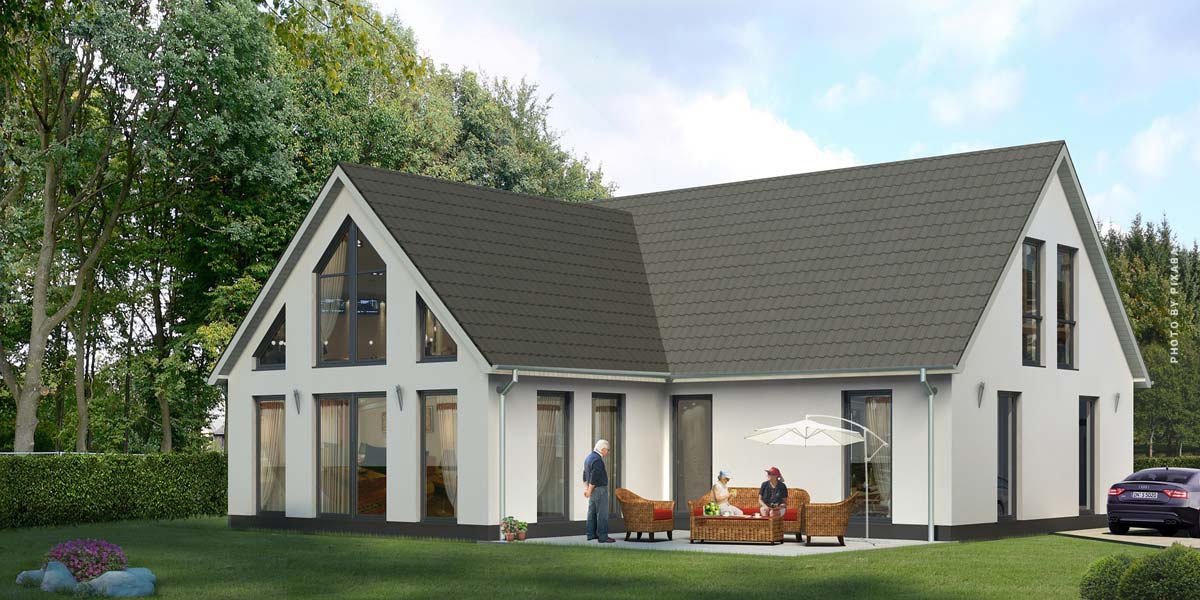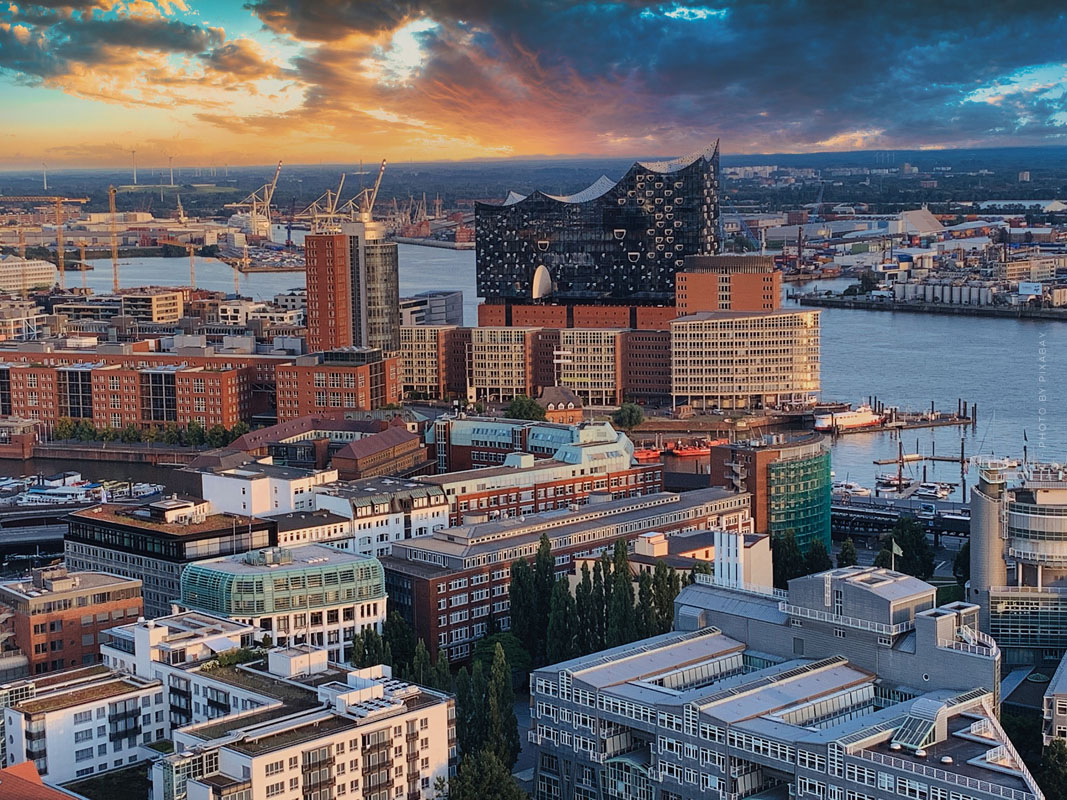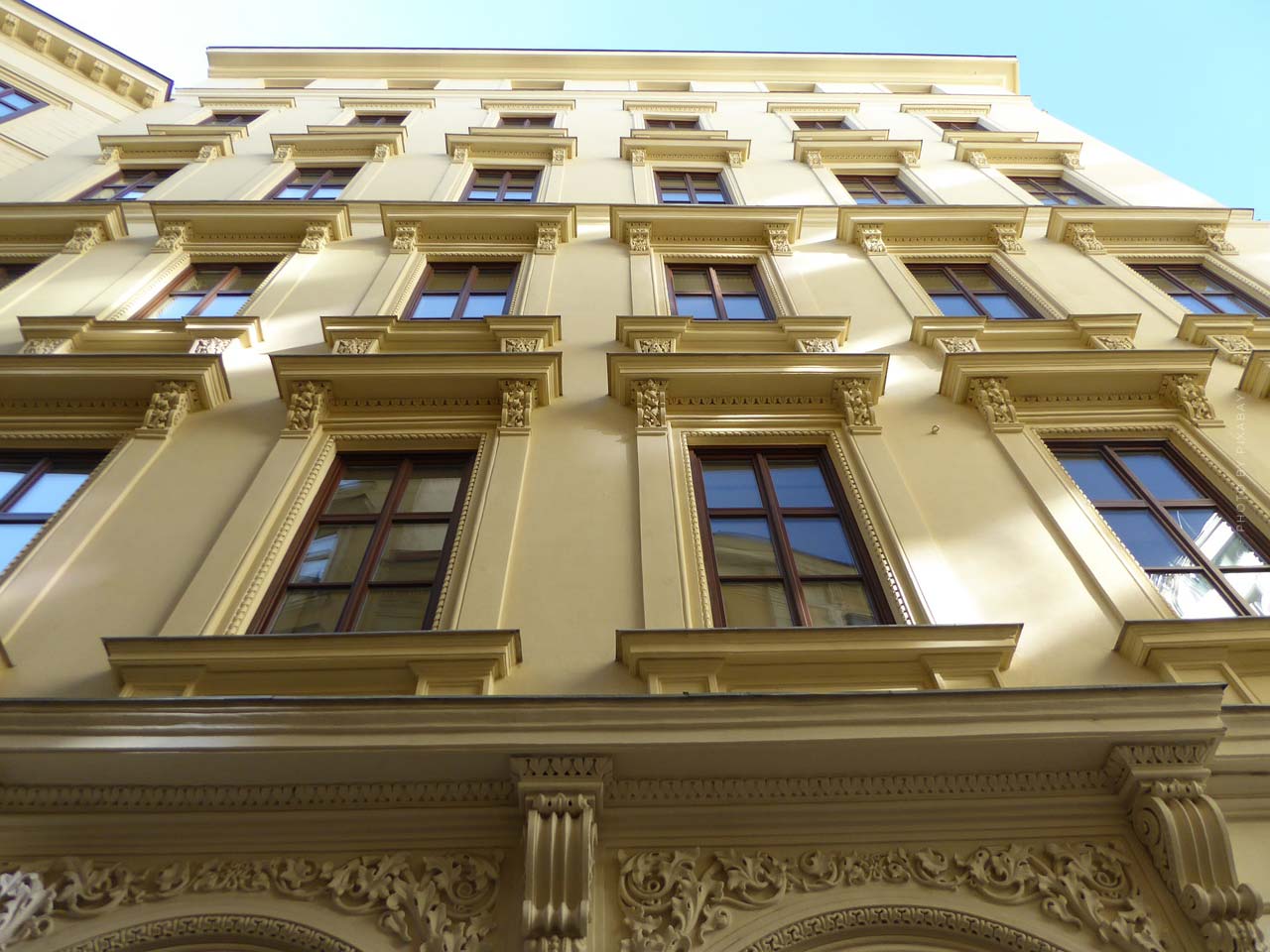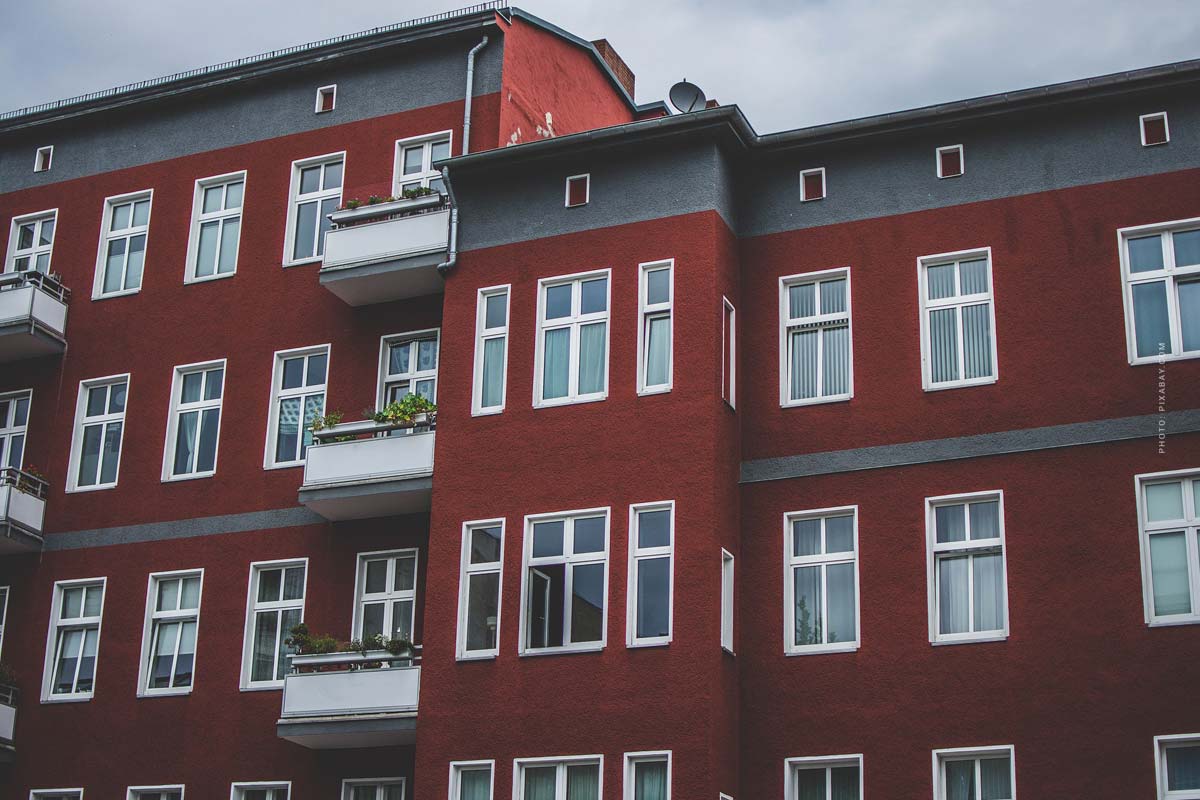Basement apartment: definition, characteristics and basement apartment to develop, sell or rent.
Basement apartment – You want to rent an apartment, buy an apartment or you are thinking about developing a granny flat in your house? Then a basement apartment may be the right choice. Basement – what is it? This type of apartment is located underground, that is, in the basement or cellar. Often, you can find such housing in the middle of the city center, so in a perfect location. However, often potential tenants/buyers are rather deterred from buying such a property because of its position in the building. Are you interested in renting or buying such an apartment in order to rent it out afterwards? We have researched for you and found out everything about the advantages, disadvantages, possible mold, rental prices and much more. Back to the overview here: Apartment types.
Basement apartment: what is it? – Features & Definition
A basement apartment is above all inexpensive. The property, which is usually located in the middle of the city centre, is rather unpopular despite its comparatively cheap rent and some aspects deter potential tenants. Despite this, with a few simple tricks you can easily convert a basement into an apartment and earn some money on the side. You have the option of converting your own basement and renting it out or buying a condo in the city. Here you will learn everything about the basement apartment.
Are you looking for a suitable apartment – whether as a tenant or investor? Then take a look at our guide to apartment types A-Z!
Important features: Living in the basement
As you’ve already experienced, a basement apartment is located in the basement or cellar. But that doesn’t necessarily mean that your living space will be uncomfortable or gloomy. Souterrains are now included in the construction of many homes and are therefore designed as proper apartments. Usually you will have your own staircase leading to your apartment and in many cases a small terrace or green area is also included as a substitute for a balcony. Despite some of the perks, don’t discount the flaws. The ceilings will be a bit lower and basically the windows are rather smaller and you get comparatively little daylight.
Can any basement become a basement apartment?
Often the own basement is converted into a small apartment for personal use. For example, if the children want a little more privacy, you have the option of converting the basement and creating a second entrance through the separate staircase. However, if you plan to convert your own basement into an apartment to rent out afterwards, you have to follow some guidelines. The main issue is the ceiling height, which must guarantee a certain size. These guidelines are different in every state. In the course of the article, you will learn more about the development.
Advantages & disadvantages of a basement apartment: climate, daylight, stairs & Co.
As with any apartment, you should consider the pros and cons of a basement apartment. Before you plan to convert your basement into an apartment, move into one or buy one, you need to be sure that a basement is right for you. We have summarized the most important facts for you so that you can make the right choice.
Advantages: good indoor climate, short distances, own terrace
A big plus is the indoor climate in a basement apartment. Since it is below ground level, it stays pleasantly cool in summer and little heat can get in. At the same time, the warm air cannot escape quickly in winter. Another advantage is the short distances in your apartment. Unlike other tenants, a basement apartment has a separate entrance via its own staircase, which means you never have to carry your drink crates and shopping bags for long. It’s also not uncommon to have your own terrace and possibly a small green area as a substitute for a balcony. Last but not least, the biggest plus point is of course the usually excellent location in the city centre for a comparatively low price.
- Good indoor climate
- Short distances, few stairs
- Own terrace, green area
- Low prices despite city centre
Disadvantages: little daylight and higher heating costs
Probably the biggest disadvantage is the low daylight through the small windows. In addition, the walls are usually lower than in other apartments and by the stairs, which one must use forced maßen, a basement apartment is not barrier-free. Another disadvantage are the possibly higher heating costs. Normally you can benefit from the heated walls of your next door tenants but this is not the case with a basement. In addition, you should be aware that the entrance to your apartment is usually on the street and therefore the probability of burglary is higher.
- Less daily fish
- Low walls
- Not barrier free
- Possibly higher heating costs
Are you interested in buying an apartment? Here you will find useful tips and all the important information on the subject!
Basement apartment: for whom is the basement apartment suitable?
A basement apartment is different from other apartments. You are forced to accept a few disadvantages that you would not have otherwise. Even if you want to invest in a basement or plan to convert your basement into one to rent out afterwards, you should pay attention to the potential tenants. We’ve listed two groups for you that would be a perfect fit for a basement.
Students: Close to university and small rent
Students are probably the first choice for basement tenants. A decisive reason for this is the location of such an apartment. Mostly you can find this kind of accommodation in the middle of the city centre and close to the university. This makes one very flexible. The rent price also plays a decisive role. Especially students are known for not having a fortune and therefore a basement apartment would be perfect for them. You can live very centrally and not pay a high rent for it. For this, most young people also accept some disadvantages. Another plus point is the possibility to reduce the rent, if in some areas of the flat there is only a ceiling height of 1m-2m. With the corresponding square meters, you only have to pay half the price / sqm.
Singles: perfect transitional apartment
For singles or single people, a basement apartment is ideal. The central location and low costs are also a big factor for them. You are well connected and usually have only short distances to work. In addition, you have the opportunity to have your own terrace and a small green area, which you can design according to your personal wishes. Often, a basement apartment is also built into the parents’ house or you use such a property as a transitional apartment to save money.
Viewing appointment: Light, climate & insurance
Especially when it comes to basement apartments, you need to pay attention to some important things during the viewing. If you plan to invest your money in such a property, you should know about everything and consider some aspects so that you can plan with your money. A basement apartment is just different from conventional apartments. In order to be prepared for everything when moving in or buying, we have summarized and listed the most important points during the inspection.
Tip. If you want to learn more about condominiums, you can find a useful article here!
Light &Windows: visit at the right time of day
This tip may sound a bit strange at first, but we recommend that you schedule your viewing appointment in the afternoon (12:00-16:00). The simple reason for this is that the most light comes into the apartment at this time and you can see whether the incoming daylight is sufficient for you. You should also pay attention to the orientation of the windows. If they face the street, it is possible that passers-by could look in and you would have to install additional privacy screens. If the windows face a green area, the room will look brighter and more inviting.
Climate: Watch for signs of mould
The climate also plays an important role in a basement apartment. When you enter, look out for possible odours. Does it smell damp, musty or stale? Unfortunately, these are signs of mold and that can happen quickly in a basement apartment. So check out the window sills and walls and look for stains or discoloration. It could be leaking pipes or poorly insulated walls that are causing the mold. These are all important aspects that you should check before buying/renting.
Insurance: for flood and storm damage
Also find out if the home has backwater insurance and if your insurance pays for flood or storm damage. Sometimes it can happen that during heavy storms water comes into the basement only that this time it would be your apartment. So you should be insured, whether owner or tenant, so that in the worst case nothing can happen.
Basement finishing: Plan your basement apartment
Especially in large cities, living space is becoming increasingly scarce and basement apartments are more popular than ever. Many owners of apartment buildings set up living spaces in the basement in order to rent them out afterwards. If you too are an owner interested in finishing, here are the key facts to consider. You have to follow some official guidelines to make it livable and we have summarized them for you.
Basement conversion and building regulations: What you should bear in mind
Especially when converting basement rooms, there are a few things to consider. In each federal state, the building regulations and thus also the minimum requirements for living spaces are interpreted differently and you must adhere to your regulations when converting. For example, the minimum room height is 2.50 metres in Berlin and only 2.30 metres in Schleswig-Holstein. The guidelines also differ on the size of window areas. In most countries window surfaces must make up 10% of the room floor space. In Bavaria it is again 12.5%. You should inform yourself before the construction exactly to get no penalties.
High costs during conversion: ancillary costs, sewage system & more
At first glance, it seems to be particularly easy and inexpensive to build a basement apartment. However, one should not disregard the amounts involved in the conversion. This starts with the planning and approval costs, since, among other things, an architect must have the construction approved by the authorities. In addition, sound insulation must be installed on the ceiling and heating systems must be installed. At the same time, sewage lifting stations are usually needed and windows should be enlarged. Often, the exterior walls also need additional insulation. Roughly speaking, additional costs of 2000€/sqm could be incurred to convert a basement into a basement apartment.
Tip. Are you interested in real estate as an investment? Then take a look at our article!

